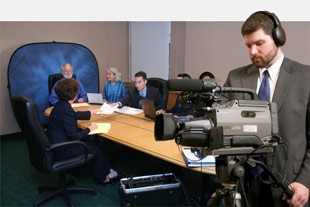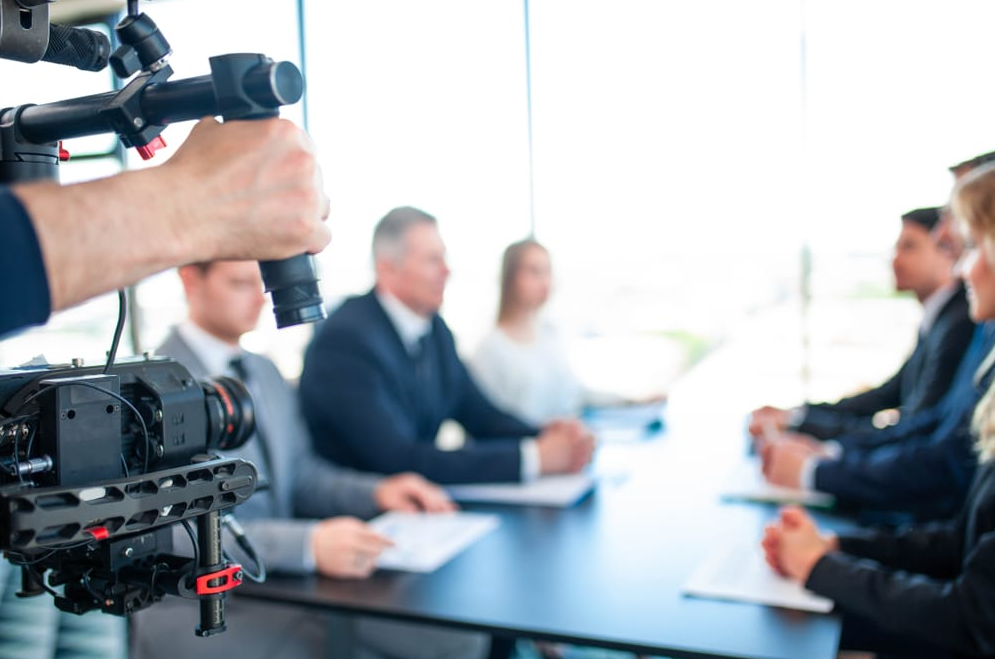Customized Legal Videography for Your Legal Needs.
Customized Legal Videography for Your Legal Needs.
Blog Article
The Duty of Lawful Videography in Depositions and Tests
Lawful videography has actually emerged as a necessary tool in both depositions and trials, offering a multifaceted approach to recording witness testaments. As legal professionals increasingly identify its worth, it triggers a deeper examination of just how these aesthetic records can affect juror assumptions and trial outcomes.
Relevance of Lawful Videography
Legal videography plays a pivotal duty in the paperwork and presentation of depositions and tests. This specific field incorporates technological skills with lawful understanding to create a trusted document of proceedings that can dramatically affect case end results. The appearance of lawful videography enhances the understanding of witness testament, allowing jurors and courts to observe not only the talked words however additionally the attitude, emotions, and body movement of the witnesses.

The relevance of lawful videography extends past the court; it likewise plays a vital duty in protecting evidence for future referral, whether for charms or further lawsuit. As such, its assimilation into the lawful procedure is important for ensuring a reasonable and accurate depiction of the facts, inevitably contributing to the pursuit of justice.

Refine of Legal Videography
While capturing the nuances of depositions and trials, the procedure of lawful videography involves several important actions that ensure premium, precise recordings. Originally, a professional legal videographer prepares by evaluating the situation products and recognizing the details requirements of the deposition or trial. This prep work consists of acquainting themselves with the individuals and the context, which assists in recording relevant details.
On the day of the recording, the videographer establishes the required devices, which normally consists of high-def cams, microphones, and appropriate illumination. Making sure ideal angles and audio high quality is essential, as it directly impacts the effectiveness of the recording. The videographer connects with lawyers and individuals to establish protocols, ensuring that everyone recognizes the recording procedure.
During the deposition or trial, the videographer meticulously videotapes the process, paying close interest to both verbal and non-verbal cues. legal videography. This consists of catching the behavior and reactions of witnesses and lawyers. After the session wraps up, the videographer may edit the video for clearness and compliance with lawful requirements, producing a last item that accurately mirrors the procedures for future reference and usage in legal contexts
Advantages in Depositions
The unification of videography in depositions provides numerous benefits that enhance the total process of gathering proof. One primary advantage is the imp source ability to record witness statements with visual and acoustic fidelity, giving a much more accurate depiction of the witness's disposition, tone, and body movement. This multidimensional method permits attorneys and courts to assess credibility better than typical written transcripts alone.
In addition, videographed depositions act as an effective tool for protecting testimony. Needs to a witness become not available for test, their tape-recorded deposition can be played in court, making certain that their evidence stays obtainable and relevant. This element significantly decreases the danger of losing vital information that could affect instance outcomes.
Additionally, making use of lawful videography promotes better preparation for lawyers. Assessing video clip footage allows legal teams to examine and improve their strategies, identifying staminas and weaknesses in their situations. This primary benefit can bring about even more engaging discussions in court.
Lastly, videography enhances the overall expertise of the deposition process, instilling confidence in clients concerning the thoroughness of their legal representation. By leveraging innovation, lawyers can substantially enhance the efficiency view it now of depositions.
Effect on Trials
In numerous trials, the integration of videography can considerably influence the presentation of evidence and the court's assumption. Lawful videography catches witness statements and important evidence in a dynamic format, allowing jurors to involve with the product on several levels. This visual element improves the storytelling aspect of a trial, providing context and emotional vibration that standard text-based evidence may do not have.
In addition, video recordings can act as effective devices for impeachment during cross-examination. When disparities develop between a witness's previous declarations and their court testimony, video clip evidence provides an unbiased recommendation that can sway jurors' point of views. This immediacy and clearness can bolster the credibility of an event's narrative while simultaneously threatening opposing disagreements.
Additionally, making use of videography can help simplify complicated details, making it a lot more available to jurors that may battle to understand intricate details offered exclusively through spoken testament. By integrating visuals with acoustic info, lawful videography can enhance retention and understanding, inevitably influencing the court's decision-making procedure. As a result, the influence of videography in trials expands beyond simple aesthetics; it plays a vital role in shaping the lawful landscape and outcomes.
Future Trends in Legal Videography
As we look towards the future of lawful videography, numerous emerging patterns assure to improve its role within the court room. One substantial pattern is the assimilation of expert system (AI) in video analysis and editing and enhancing - legal videography. AI can improve the procedure of identifying crucial minutes in recorded depositions, allowing attorneys to swiftly access pertinent web content, thereby enhancing effectiveness in situation prep work
In addition, the surge of digital reality (VR) and augmented reality (AR) innovations is expected to transform exactly how jurors experience evidence. By immersing jurors in a simulated atmosphere, these innovations can supply a much more profound understanding of click to read complicated situations, resulting in more educated deliberations.

Additionally, the boosting demand for remote depositions, accelerated by the COVID-19 pandemic, will likely continue. Lawful videographers will certainly require to adapt to new software and systems to make certain high-grade recordings in digital setups.
Finally, the growing focus on information safety and security will demand more stringent procedures for storing and sharing video clip evidence. As the legal landscape advances, lawful videographers should stay abreast of these fads to keep their importance and efficiency in the judicial process.

Final Thought
In recap, legal videography offers an essential function in the judicial process, enhancing the honesty of depositions and tests. By recording the nuances of witness statements, this tool not only protects essential evidence however additionally aids in providing details efficiently to jurors. The value of aesthetic paperwork in assessing reliability and facilitating interrogation can not be overemphasized. As technology continues to progress, lawful videography is positioned to further transform its function within the lawful landscape.
Report this page